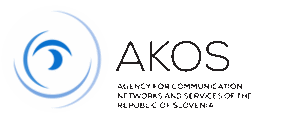|
|
|||||||||
International collaborationThe Agency collaborates with many international organizations and institutions in the telecommunications field. Operating through numerous bodies it actively participates in discussions related to regulation, digital agenda, and other current affairs. Here are some of the most important international institutions. COCOM (Communications Committee)The European Commission’s Communications Committee (COCOM) was established in accordance with the 2002 Framework Directive to support the European Commission in carrying out its executive authorizations, based on the regulatory framework which governs telecommunications in the European Union. COCOM established a dedicated group called EGEA (Expert Group on Emergency Access) that combines experts from public institutions (ministries, emergency helpline organizations, regulators responsible for electronic communications). The group aims to develop common European requirements for accessing and communicating with emergency response centers and also to develop a joint European interface for accessing emergency calls that would provide an efficient transfer of information to emergency response centers via new technologies. In 2003, the European Year of People with Disabilities, COCOM established the INCOM (Inclusive Communication) subgroup. BEREC (Body of European Regulators for Electronic Communications)The BEREC is the European body of electronic communications regulators. It replaced the European Regulators Group in 2010. BEREC facilitates collaboration and harmonization between national regulatory bodies and the European Commission with the aim of developing an internal market for electronic communication networks and services. EENA (European Emergency Number Association)The EENA is a non-governmental organization based in Brussels. It was established in 1999 in order to improve the quality of the emergency call service via a unified 112 number all over Europe. A fundamental right of every European citizen is to be informed of the toll-free 112 emergency number and to be provided with necessary assistance in the shortest possible time within the EU. ITU (International Telecommunication Union)The ITU is a specialized agency of the United Nations which is responsible for information and communication technologies. Its organization is based on a public-private partnership. Its membership currently includes 193 Member States and over 700 private members and academic institutions. The ITU is based in Geneva, and also has twelve other regional offices around the world. The Agency actively collaborates with ITU in submitting information related to electronic communications. OECD (Organisation for Economic Co-operation and Development)
The OECD was established in 1947 to facilitate policies for improving economic and social welfare. Slovenia became one of its members in 2010, as did the Agency itself, with its data and validation which it contributes to the report compiled by the OECD. |
|||||||||
|
Agency for communication networks and services of the Republic of Slovenia
Stegne 7, 1000 Ljubljana, Slovenia T: 01 583 63 00 F: 01 511 11 01 E: info.box@akos-rs.si |
|
 RSS
RSS Slovenian
Slovenian


 Top of the page
Top of the page
 Print
Print